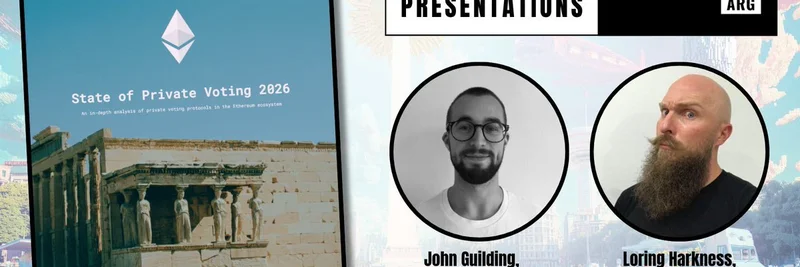If you're knee-deep in the world of meme tokens, you know that community governance can make or break a project. That's where privacy comes into play, and Shutter Network is pushing the envelope with their latest insights. Recently, they announced two key presentations on the "State of Private Voting 2026" report at Devconnect in Buenos Aires. This isn't just tech jargon—it's about making voting in blockchain ecosystems fairer and more secure, which could directly impact how meme token DAOs operate.
What is the State of Private Voting 2026 Report?
The report, co-authored by the Shutter team and the Privacy Stewards of Ethereum (PSE), dives deep into 12 different private voting protocols currently shaping the Ethereum landscape. Private voting, in simple terms, uses cryptographic tricks—like zero-knowledge proofs—to let people vote without revealing their choices. This prevents issues like bribery, coercion, or even just peer pressure that can skew decisions in public voting systems.
You can check out the full report on Shutter's blog or PSE's site. It's a must-read if you're building or participating in any blockchain governance, especially in the fast-paced meme token space where community votes often decide token burns, partnerships, or even meme contests.
Why This Matters for Meme Tokens
Meme tokens thrive on hype and community involvement, but transparent voting can lead to manipulation. Think about it: if everyone sees how whales are voting, smaller holders might follow suit or get intimidated. Private voting protocols could level the playing field, ensuring that decisions reflect true community sentiment without external influences.
Shutter Network, known for encrypting the mempool to combat malicious MEV (Maximal Extractable Value), is extending this privacy focus to governance. MEV is that sneaky stuff where bots front-run trades, often hitting meme token launches hard. By institutionalizing private voting on Ethereum, projects like Shutter aim to make the entire ecosystem more resilient—perfect for meme creators who want fair play.
Details on the Devconnect Presentations
The presentations are happening on November 19, 2025, at La Rural in Buenos Aires during Devconnect, organized by the Ethereum Foundation. Here's the scoop:
- Governance Geeks Hub (Main Area): 10:30 AM, co-presented by John Guilding (Team Lead, Private Governance Team at PSE/Ethereum Foundation) and Loring Harkness (Contributor at Shutter Network).
- Privacy Hub (The Cave): 1:00 PM, same dynamic duo.
These sessions will break down the report's findings, discuss challenges, and explore ways to integrate private voting into Ethereum's core. If you're attending Devconnect, don't miss them—it's a chance to network with privacy pros and get ahead on tech that could safeguard your next meme token venture.
Looking Ahead: Privacy in Blockchain's Future
As meme tokens evolve from jokes to serious communities, tools like private voting will be crucial. Shutter's work highlights how privacy isn't just about hiding—it's about empowering users. If you're a blockchain practitioner, keep an eye on these developments; they could transform how we govern decentralized projects.
For more on cutting-edge blockchain tech and its ties to meme culture, stick around at Meme Insider. Got thoughts on private voting? Drop us a line or check out related reads on our site.

